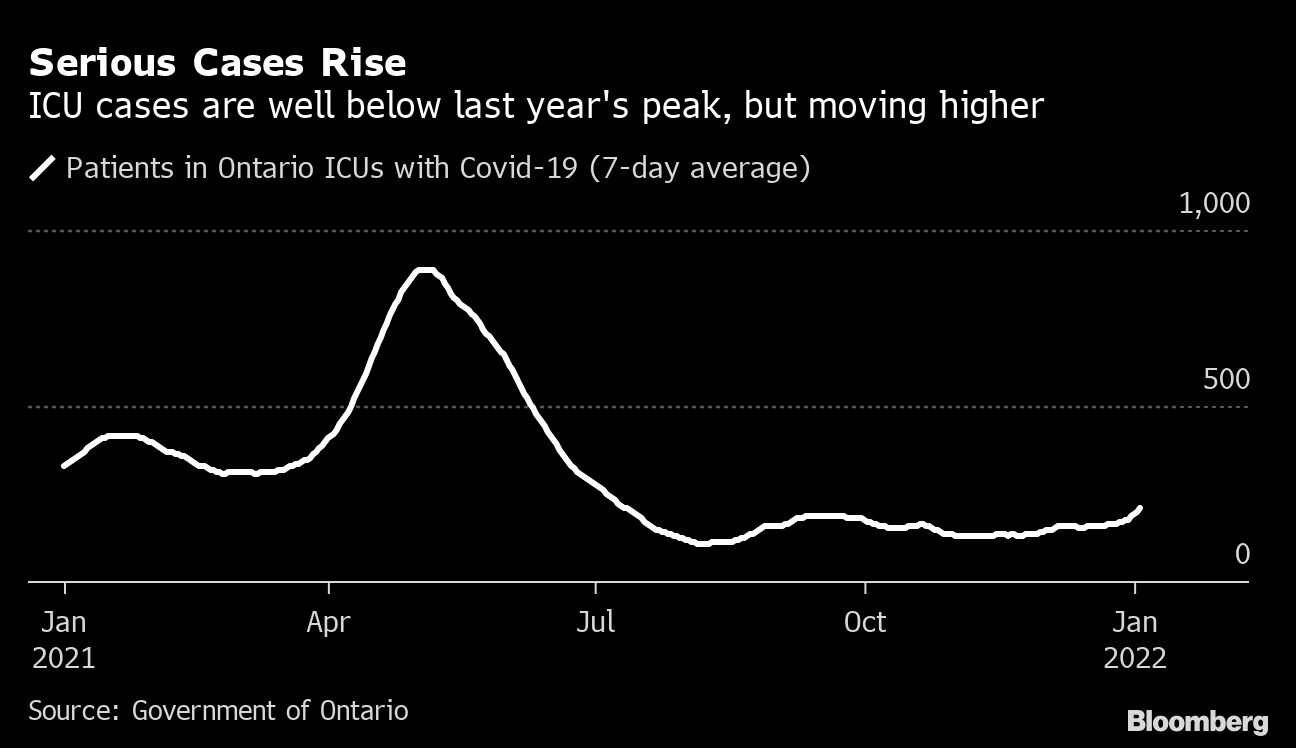Jan 3, 2022
Ontario tells companies to work remotely; schools go online
, Bloomberg News

Ontario said it will once again force restaurants to close, shift schools to online learning and order companies to work from home as the government tries to prevent COVID-19 from overwhelming the hospital system.
“We’re bracing for impact,” Premier Doug Ford said at a news conference Monday. “The math isn’t on our side.”
The measures are meant to slow a spike in cases similar to the one affecting many regions of the U.S. Canada’s most populous province has more than 1,200 people in the hospital with the virus, including 248 in intensive care, though the number of serious cases is still well below the levels seen last May.

About 72 per cent of adult ICU beds in the province are occupied, according to government data.
Ford said the new restrictions are based on estimates that about one in 100 new cases results in hospitalization. “We could see hundreds of thousands of cases -- let’s be conservative, 100,000 cases or 200,000 cases. That’s a day,” Ford said. “That’s 1,000 people, 2,000 people showing up to hospitals. That’s not sustainable.”
As a result, his government will implement a new work-from-home order and impose stricter limits on indoor gatherings, including weddings and funerals. Gyms, theaters, concert venues and many other indoor businesses will have to close starting Jan. 5.
In addition, the province is delaying some non-urgent surgeries to prepare for what Ford called a “tsunami of new cases.”
“As we continue with our provincial vaccine booster efforts, we must look at every option to slow the spread of the highly-contagious omicron variant,” Ford said in a written statement Monday. He said the measures would be “time limited” and are tentatively scheduled to lift Jan. 26.
The shift to remote learning at schools begins Wednesday, when in-person classes had been scheduled to resume after the Christmas holiday. Classes will stay online until at least Jan. 17.
‘Devastating’
The Canadian Federation of Independent Business called the new restrictions a “devastating” way start to the year and called for more government aid for small firms dealing with restrictions.
“The supports are not even close to being enough to help businesses get through the next three weeks of lockdowns, which one assumes could easily be extended,” Chief Executive Officer Dan Kelly said in an interview. Many small businesses have been “weakened” by a pandemic that has now lasted almost two years, he said.
“There will be tens of thousands of businesses for whom this will be the sign to close up shop,” Kelly said.
Across Canada, provinces have attempted to blunt a wave of omicron infections. Quebec, the country’s second-largest province, has tried to curb infections with a curfew that began on New Year’s Eve. In British Columbia, bars and nightclubs were ordered to close and indoor gatherings “of any size” for events like weddings were prohibited. Alberta postponed the return to school after the holiday break.
“Additional time-limited measures are needed to help limit transmission as Team Ontario continues to get booster doses into arms,” Ontario Health Minister Christine Elliott said in a statement. Ontario has now delivered more than 3.7 million booster shots.





